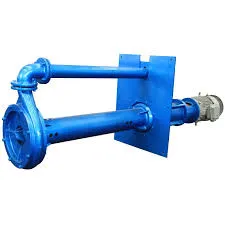English
- Afrikaans
- Albanian
- Amharic
- Arabic
- Armenian
- Azerbaijani
- Basque
- Belarusian
- Bengali
- Bosnian
- Bulgarian
- Catalan
- Cebuano
- Corsican
- Croatian
- Czech
- Danish
- Dutch
- English
- Esperanto
- Estonian
- Finnish
- French
- Frisian
- Galician
- Georgian
- German
- Greek
- Gujarati
- Haitian Creole
- hausa
- hawaiian
- Hebrew
- Hindi
- Miao
- Hungarian
- Icelandic
- igbo
- Indonesian
- irish
- Italian
- Japanese
- Javanese
- Kannada
- kazakh
- Khmer
- Rwandese
- Korean
- Kurdish
- Kyrgyz
- Lao
- Latin
- Latvian
- Lithuanian
- Luxembourgish
- Macedonian
- Malgashi
- Malay
- Malayalam
- Maltese
- Maori
- Marathi
- Mongolian
- Myanmar
- Nepali
- Norwegian
- Norwegian
- Occitan
- Pashto
- Persian
- Polish
- Portuguese
- Punjabi
- Romanian
- Russian
- Samoan
- Scottish Gaelic
- Serbian
- Sesotho
- Shona
- Sindhi
- Sinhala
- Slovak
- Slovenian
- Somali
- Spanish
- Sundanese
- Swahili
- Swedish
- Tagalog
- Tajik
- Tamil
- Tatar
- Telugu
- Thai
- Turkish
- Turkmen
- Ukrainian
- Urdu
- Uighur
- Uzbek
- Vietnamese
- Welsh
- Bantu
- Yiddish
- Yoruba
- Zulu
Telephone: +86 13120555503
Email: frank@cypump.com
Nov . 11, 2024 07:53 Back to list
high pressure slurry piston pump
High Pressure Slurry Piston Pumps An Overview
High pressure slurry piston pumps play a crucial role in various industries, particularly those involved in mining, mineral processing, and wastewater management. These pumps are designed to handle thick, viscous liquids composed of solids suspended in a liquid medium—commonly referred to as slurry. The combination of high pressure and the capability to manage abrasive materials makes these pumps indispensable in operations demanding reliability and efficiency.
How High Pressure Slurry Piston Pumps Work
Piston pumps operate on a relatively straightforward principle. The pump consists of a piston that moves back and forth inside a cylinder, creating a vacuum that draws the slurry into the cylinder during the intake stroke. As the piston moves forward during the discharge stroke, the slurry is expelled at high pressure through the outlet. The ability to generate high pressure is largely due to the mechanical advantage provided by the piston mechanism, which compresses the slurry and forces it out through narrow discharge pipes.
Key Components
The primary components of a high pressure slurry piston pump include the piston, cylinder, valves, and a drive mechanism. The piston is typically designed with durable materials to withstand the abrasive nature of slurry, while the valve system ensures that the flow direction of the slurry is managed effectively. The drive mechanism can vary from electric motors to hydraulic systems, depending on the application's requirements.
Applications
High pressure slurry piston pumps are widely utilized in various fields
1. Mining and Mineral Processing In mining operations, these pumps are essential for transporting mineral slurries from one location to another, often over considerable distances and at significant elevations. They efficiently handle the high solids content typical of ore slurries, enabling increased productivity and reduced operational costs.
high pressure slurry piston pump

2. Wastewater Treatment In wastewater treatment facilities, high pressure slurry pumps are used for transferring sludge and other by-products through the treatment process. The ability to maintain high pressure allows for effective transport through thick, viscous materials.
3. Construction and Civil Engineering These pumps are also used in construction, particularly for dewatering applications or transporting concrete mixtures. Their reliability under demanding conditions makes them suitable for construction sites and heavy industrial environments.
Advantages
The advantages of high pressure slurry piston pumps include their high efficiency, ability to handle aggressive and abrasive materials, and their performance in high-pressure applications. They can operate continuously under heavy loads, which is vital in industrial settings. Additionally, the simple design contributes to ease of maintenance, reducing downtime and operational costs.
Challenges and Considerations
Despite their many advantages, high pressure slurry piston pumps come with certain challenges. The wear and tear caused by abrasive slurries can lead to increased maintenance needs. Therefore, the selection of materials for components must be carefully considered to enhance durability and reduce friction. Moreover, operators must ensure proper sealing to prevent leakage, which can compromise efficiency and safety.
Conclusion
High pressure slurry piston pumps are integral to the smooth operation of many industrial processes. Their ability to handle thick mixtures under high pressure showcases their importance in sectors such as mining, wastewater management, and construction. As industries continue to evolve, advancements in pump technology are likely to further improve efficiency, reduce operational costs, and enhance sustainability. Companies looking to optimize their operations should consider investing in these robust and efficient pumping solutions to meet both current and future demands.
-
Horizontal Split Case Pump with GPT-4 Turbo | High Efficiency
NewsAug.01,2025
-
ISG Series Pipeline Pump - Chi Yuan Pumps | High Efficiency, Durable Design
NewsAug.01,2025
-
Advanced Flue Gas Desulfurization Pump with GPT-4 Turbo | Durable & Efficient
NewsJul.31,2025
-
ISG Series Vertical Pipeline Pump - Chi Yuan Pumps | Advanced Hydraulic Design&Durable Construction
NewsJul.31,2025
-
ISG Series Vertical Pipeline Pump - Chi Yuan Pumps | Energy Efficient & Low Noise
NewsJul.31,2025
-
pipeline pump - Chi Yuan Pumps Co., LTD.|High Efficiency&Low Noise
NewsJul.31,2025










